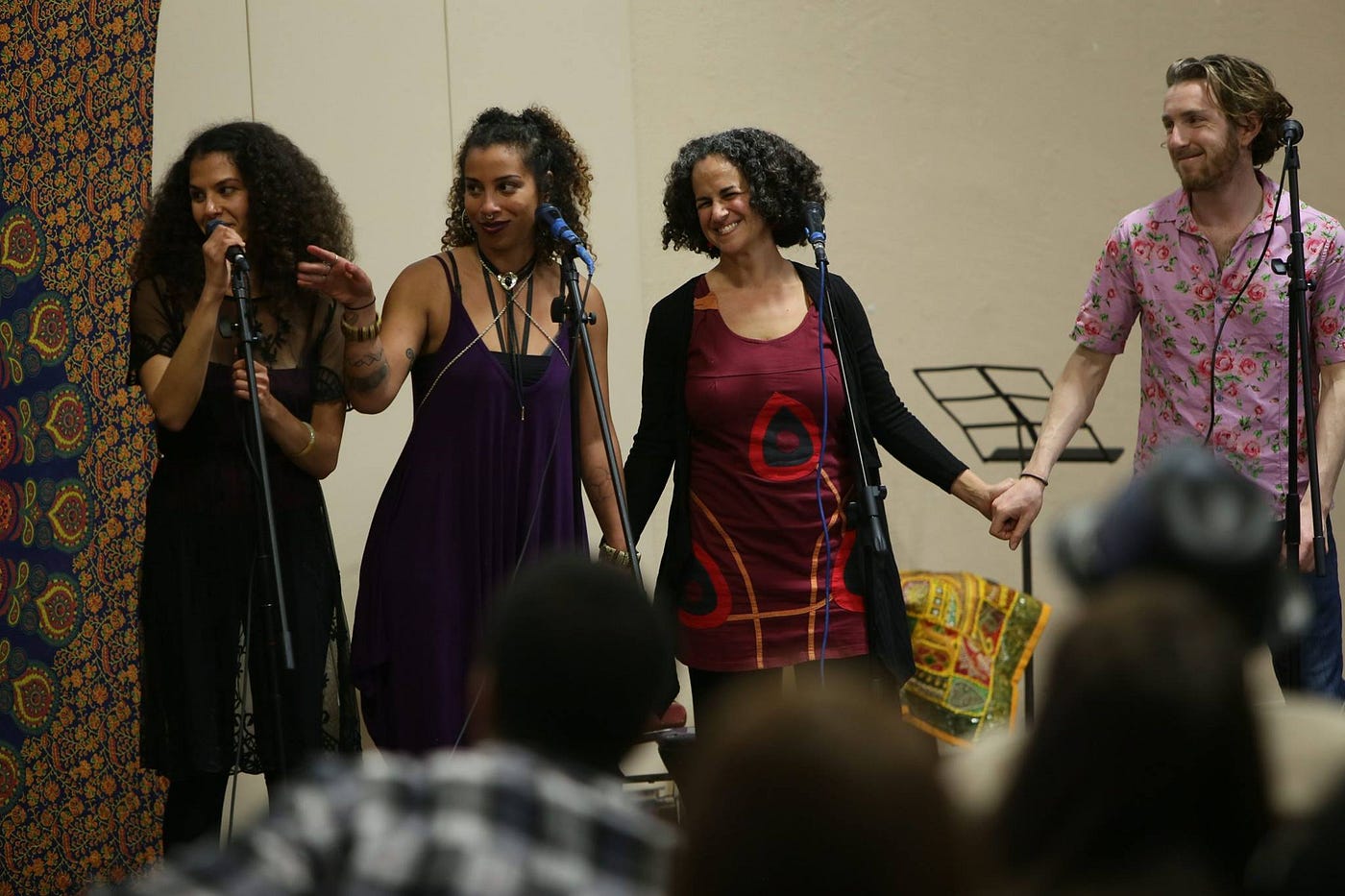
Like many people born in the 1990s, I have a fraught relationship with religion. My father was raised “Jewish-ish,” and my mom calls herself a “recovering Baptist.” Growing up, we celebrated Chanukah only when we could find enough tea lights for the menorah, and I attended an all-religions Sunday school where Jesus songs got a refresh to include the likes of Buddha and Allah (think: “Buddha loves me, this I know, for the Sutras tell me so”).
This eclectic upbringing has led me to try a variety of spiritual offerings as an adult — Shabbat services, meditation retreats, Catholic Mass and even a self-help program called Landmark Forum — in search of one that feels right. And while each offers something compelling (except Landmark, which might be a cult), I’ve always left feeling like something was missing.
As a young person born in the US, I’m not alone in my lack of religious zeal. Only one in four millennials is affiliated with a particular religion, according to a Pew Research Center study. We’re part of the religiously unaffiliated “nones,” a population that’s been steadily rising over the past decade.
To speak to this crisis of faith, progressive and secular churches have sprung up around the greater Bay Area with the goal of giving young people what traditional churches once did — community, a sense of purpose and an outlet for devotion or prayer.
This trend seems particularly relevant to the Bay Area, one of the least church-going places in the country. Here, just over 40 percent of adults say they’re absolutely certain they believe in God, compared to 63 percent of all Americans.
To speak to this crisis of faith, both progressive and secular churches have sprung up with the goal of giving young people what traditional churches once did: community, a sense of purpose and an outlet for devotion, meditation or prayer. Many have the basic fundamentals of church, like singing and sermon-like speeches, but without the strong God connotations. Instead, they focus on things like social justice and community service.
In my ongoing quest to better myself andstop spending so much time in my head, I recently went to one of these modern, millennial-friendly organizations, called Thrive, in Oakland. Walking up, I fully expected a Jesus-forward, prayer-heavy service, given that the event was held in a church and the congregation (err…community) sat in pews. When the service opened with a spoken-word poem with no mention of God, however, I began to doubt my assumptions.
Thrive, founded by Joshua Gorman and Cherine Badawi, among others, aims to provide a space for people to find meaning and connection. Many of their services open with singing and poetry, or with community activists giving secular “TED Talks.” That particular day, the crowd seemed young and excited, with expectant energy that felt reminiscent of a birthday or wedding.

Gorman, Thrive’s cofounder, says the idea came in part from his own background—he was raised Christian but lost his faith at around age 15 when he and a Muslim friend began questioning their respective beliefs, including the idea that the other was “damned.”
“All the answers I was finding felt like human attempts to make meaning,” Gorman said, noting that he stopped going to church.
After leaving Washington, DC, after his senior year of high school, Gorman traveled along the West Coast, where he came into contact with the teachings of Ken Wilber and Huston Smith, religious scholars with scientific explanations for creation. They gave him a new framework with which to explain the world around him.
“I suddenly found a story that resonated with my soul, and my mind could be like, ‘Yes, I believe this,’ because it was rooted in fact and science,” Gorman said.
He tried going to Unitarian services but found that they still felt pretty Christian, with communities that were older and white. He wanted something fresher and more diverse.
If I had to guess, I would say that many people also feel like I do: mostly happy, but somewhat empty, and always searching for a deeper meaning.
Thrive isn’t the only space for this type of worship in the Bay Area. Sunday Assembly, a completely secular church in Berkeley, is one of the most popular. Founded by two comedians, Sanderson Jones and Pippa Evans, it has monthly services that include talks and singing (“the best parts of a church without any of the religious dogma,” the website states).

Yet unlike Thrive, which Gorman calls “soulful,” Sunday Assembly is overtly atheist. Gorman says speakers at Thrive are asked to use language that’s “inclusive,” but they sometimes do mention “God.”
Other hip, millennial-friendly spiritual venues in the area include Glide, a Christian-based San Francisco church that calls itself “radically inclusive” and emphasizes a strong service component; Kehilla, a progressive synagogue in Oakland that uses “newer prayer forms that reflect our feminism, our egalitarianism, our concerns for the health of the planet, our spiritual seeking and our faith, as well as our healthy skepticism;” and Oak Life Church, an Oakland-based group that meets at the New Parkway Theater and focuses on diversity, peace and justice, and deep community.
Given the current zeitgeist around personal growth, it’s no wonder these institutions are, well, thriving. People have a hunger for human and community connection in an era when it’s becoming increasingly rare. If I had to guess, I would say that many feel like I do: mostly happy, but somewhat empty, and always searching for a deeper meaning. Maybe they, too, find themselves in a secular church pew without knowing quite why they’re there, then leave feeling somehow more connected.
“People are seeking hope and resilience, a place to be supported and breathe,” Gorman said.
To which I can only say, “Amen.”







